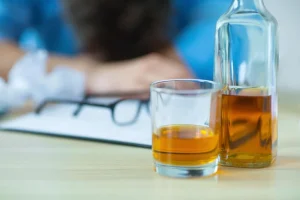
There are lots of ways you can get help if you think you have a problem with alcohol. Being open and honest about your drinking is important for getting you the right kind of help – healthcare providers and support groups won’t judge you, they are there to help. Alcohol poisoning happens when the alcohol in the body interferes with bodily functions, such as breathing, heart rate and gag reflex.

What Foods and Drinks Help Flush Alcohol Out of Your System?
- If you go through medical detox, you will have a team of medical professionals helping you get through the process safely and effectively with monitoring, medications, and other interventions.
- If you’re not sure if your drinking crosses a certain line or not, try measuring your alcohol intake.
- Drinking water, sleeping, or drinking caffeine does not remove alcohol from the blood, and will not speed up the process of getting alcohol out of the system.
- A half-life is how long it takes for your body to get rid of half of it.
- Drinking alcohol, especially in excess, can exacerbate both physical and mental health conditions.
Alcohol metabolization is commonly caused by two enzymes—alcohol dehydrogenase (ADH) and aldehyde dehydrogenase (ALDH). These chemicals break down the alcohol and allow it to be eliminated from the body’s systems. The more alcohol a person drinks, the longer it takes for the alcohol to get out of their system. If a person has alcohol intoxication, any alcohol they drink will remain in the body for several hours and continue harming the brain and vital organs. Regular drinking over a long time causes damage to the brain, which can lead to alcohol-related dementia drug addiction or brain damage (ARBD). ARBD can affect your mood or ability to complete tasks like getting dressed or cooking a meal.
Does Water Help with Alcohol Detox?
- Alcohol dehydrogenases are enzymes which turn the alcohol (ethanol) into less active metabolites and then eventually into carbon dioxide and water.
- When ingested, alcohol is rapidly absorbed from the stomach and small intestine into your bloodstream before it travels to the central nervous system (brain and spinal cord).
- ARBD can affect your mood or ability to complete tasks like getting dressed or cooking a meal.
- And because everyone metabolizes alcohol at their own rate, some people will take longer to clear it than others.
In addition, exercising will add more stress to your liver as it has to process the toxins from the alcohol and will eliminate lactic acid more slowly, leading to cramps. Your liver processes alcohol at the rate of one drink per hour, according to the National Institute on Alcohol Misuse and Alcoholism (NIAAA). That means it can take three to seven hours for your body to metabolise and eliminate one to four drinks, depending on several factors. Once alcohol enters your bloodstream after you drink, your body starts to break it down and metabolise a portion every hour.
Drink Green Tea
Call your local emergency services if you suspect alcohol poisoning in a friend or loved one. There are specific steps you can take to help reduce the effects of alcohol. All alcohol dehydrates, but some types of alcohol are more dehydrated than others. Darker liquors like whiskey and bourbon are more dehydrated than clear liquors like vodka and gin. Sweeter drinks like wine and beer can also dehydrate more than drier drinks.

Can You Flush Out Alcohol With Water?
Caffeine is a stimulant, which can perk you up and reverse some of alcohol’s effects. If you’ve had a drink or two, you might be wondering just how long that alcohol will stay in your system. Just like a broken bone or infection needs time to heal, so does an overworked liver.


Your memory won’t be as sharp, and it’ll be more difficult to focus. You may also become less coordinated, and your speech may begin to slow down. It’s also important to know how much alcohol is in your drink because that will determine how long it takes to metabolize your drink. For example, some beers have a higher alcohol content, affecting how much alcohol you consume from one drink.
- What’s more is that alcohol is packed with sugar, and some drinks such as beer, wine, and champagne are fermented as well.
- There are a number of different tests that can be used to detect alcohol in the body, and each one has a different window of detection.
- Any alcohol in the breath causes a reaction in the breathalyser, which in turn creates an electrical current.
Sugary drinks and foods are not the best choices when detoxing because they lack essential nutrients and add empty calories to your diet. Clear your body of toxins and avoid consuming too many calories by substituting water for sugary beverages during alcohol detox. Age, weight, food intake during alcohol consumption, medications, liver health, and the time between drinks all contribute to how long alcohol remains in your body. While it can be temporarily enjoyable to consume alcohol, having it in your system does water help alcohol leave your system doesn’t stay fun for long.